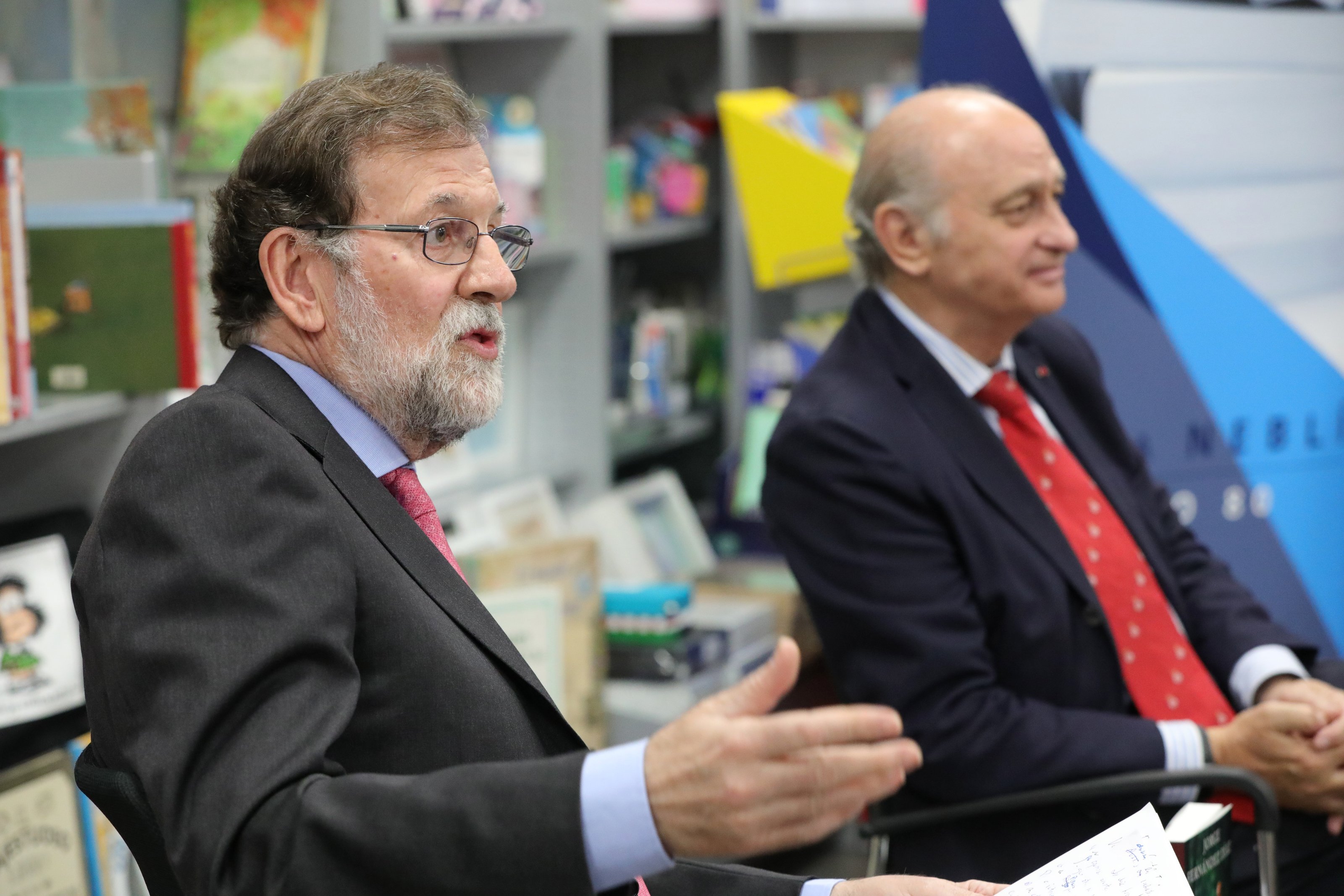The former leader of the People's Party (PP) government in Spain, Mariano Rajoy is, finally, not on the list of names that the Socialists (PSOE) will seek appearances from at the Spanish Congress's commission of inquiry into Operation Catalonia, the Spanish state's dirty war against the independence movement that began in 2012. But with the long-promised Congressional inquiry finally constituted on Tuesday, the PSOE group in Congress has presented a list that includes former police commissioner José Manuel Villarejo, ex-PP interior minister Jorge Fernández Díaz and former PP defence minister María Dolores de Cospedal. Also on the list are former operational deputy director of the Spanish National Police Eugenio Pino, the former director general of the Spanish police Ignacio Cosidó, and the former secretary of state for Security, Francisco Martínez. And why not the former PP prime minister? "Rajoy is always Rajoy", say Socialist sources: they assert that he's unlikely to end up resolving doubts.
The truth is, though, that the negotiation of the names of those to appear - and the fact that the list proposed by the PSOE is the most important, although all the other parties have their preferences - is indicative of the cynical side of the whole exercise. Despite the gravity of the allegations involved, it has taken the Congress of Deputies since June 2022 to set up the inquiry after the parties in the chamber agreed then to promote it. In September last year, Congress formally approved going ahead with it, but with the condition of the PSOE to only investigate the period in which Mariano Rajoy's PP governed Spain. The go-slow has been due to the PSOE's disinterest in moving forward, but now that a new corruption controversy has emerged in Spain with Socialist protagonists - the Mediador Case with the former PSOE deputy 'Tito Berni' as a visible figure - the need to counterattack against the PP has finally given the party some motivation to look into the dirty war against the Catalan independence movement.
As was announced on Tuesday, the commission is to be chaired by a Catalan - Ferran Bel, of the pro-independence PDeCAT; a choice who "will not generate suspicions either on one side or the other". That was the argument given by PSOE sources for having proposed Bel, Congressional leader of the PDeCAT, a now-minor centre-right Catalanist party. And this is what ended up happening: unanimously, without there being an alternative candidate, Ferran Bel has become the president of this commission that is to investigate the use of the so-called "sewers of the state" to destroy the support for the Catalan independence movement. On Monday, prior to the constitution of the commission, ERC's Gabriel Rufián had words of praise for Bel. "He is an excellent parliamentarian" who "works very well". Despite that, Rufian did not expect that the leader of the PDeCAT in the lower house would be able to avoid the intentions of the PSOE to dilute Operation Catalonia into a new commission focusing on the PP's scandals. "It would be the first time that the arbitrator of a commission conditions its content", Rufián told journalists.
Negotiating the names of those to appear
Thus, the PSOE is the party with the most veto power when it comes to deciding who will and who will not appear as witnesses in this commission of inquiry. It is nevertheless time to negotiate. The names proposed by each parliamentary group will have to be put together this Thursday, the day on which the second meeting of the Commission of Inquiry into Operation Catalonia is scheduled. The groups will have to agree and set the working methods of this parliamentary mechanism, and negotiate and agree on the definitive names of this commission. This Thursday, therefore, will be the first time the commission meets after its constitution, which took place last Tuesday.
Unidas Podemos, after not having reached an agreement with the PSOE, has requested the appearance of party's own ex-leader, former deputy PM Pablo Iglesias, as well as Rajoy, Cospedal and the current president of the National Audience. The argument of Unidas Podemos to include Iglesias is that he too has been a "victim of the sewers of the state".
Meanwhile, the lists of names of pro-independence groups revolve around three names: Mariano Rajoy, Jorge Fernández Díaz and Pablo Casado. ERC has also added names such as Alberto Núñez Feijóo, José María Aznar and the current minister Fernando Grande-Marlaska; in addition to Rajoy, Cospedal, Pino, Montoro, De Guindos and Sanchez-Camacho. The Junts list - focused mainly on the structure of the Andorran branch of Operation Catalonia - also includes the names of former vice-president Soraya Sáenz de Santamaría, former ministers Luis de Guindos and Cristóbal Montoro, the former CEO of Banca Andorrana Joan Pau Miquel, the former president of the Generalitat Artur Mas, the former economy minister Jaume Giró, the former governor of the Bank of Spain Luis María Linde, and Francisco Martínez, former number 2 of Jorge Fernández Díaz.
The CUP list, to which this newspaper also had access, includes all Spanish prime ministers from Felipe González to Pedro Sánchez; all interior and defence ministers, some ministers from other eras such as the Socialist José Barrionuevo, former directors of Spain's CNI intelligence centre, such as Félix Sanz Roldán and Paz Esteban; plus former secretaries of state for Security, and those who have led the Spanish National police and the Civil Guard.

